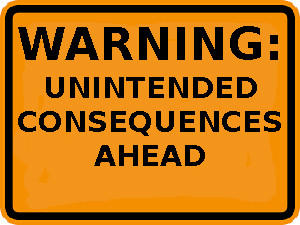In the mid-1930s, America was still mired in the Great Depression. However, not everyone suffered during this era. Thanks to the discovery of oil in 1930 in Rusk County, Texas, people in that area had money and an improved economy. The New London School District was one of the richest in the country and spent lots of money on education.
In 1932, they built a massive school building which cost over $1,000,000 at that time (equivalent to about $18.4MM today.) It was the pride of New London, an East Texas city situated about 130 miles southeast of Dallas.
On March 18, 1937, a shop teacher turned on a belt sander and the school was rocked by an explosion that made the walls bulge and the roof lift off this steel and concrete structure. An investigation identified that in an effort to save money, the school had cancelled its contract with the local gas company and instead plumbed into the Parade Gasoline Company’s residue gas line. (At the time, natural gas was considered a waste product of the oil wells and was essentially valueless.) The line was faulty and began to leak, filling the space beneath the school unbeknownst to anyone. It is speculated that a spark from the belt sander ignited the natural gas, causing the huge blast. The horrific scene was covered with devastation as parents, rescue workers, and oilmen from nearby oilfields all came to search through the rubble for survivors. Sadly, 311 lives were lost due to the explosion.
I’m not sharing this to make anyone sad, but to point to a bright spot in the story. The reason no one realized there was a gas leak was because natural gas in its pure form is colorless and odorless. It was only after this tragedy that steps were taken to add the now-familiar “rotten egg” smell to natural gas which alerts people of a leak and prevents more tragedies.
This story motivated people to act and as a result, countless lives have been saved in the 80+ years since the school suffered its devastating loss.
There are so many, “What ifs,” in this story. “What if they school had accepted the architect’s original plan to install steam boilers instead of gas heaters?” “What if they hadn’t tried to save money by cancelling the contract,” or “what if the plumbing hadn’t leaked?” We could ask, “What if the sander hadn’t sparked, or if the gas had had a place to vent to the outdoors?” There are so many variables that it’s impossible to point to one thing that was the catalyst for the destruction, nor one thing that was the catalyst to the benefit to society engendered in recognizing the danger of odorless natural gas.
As we approach Purim, we recount the familiar tale of Vashti’s unwillingness to come before the King, Haman’s rise to power, Mordechai’s refusal to bow to Haman, Esther’s ascension to the throne, and all the myriad nuances of the story. Any one of them could have been the turning point of events and without any of them the story may well have ended very differently – except that it couldn’t have.
In truth, the only act which saved the Jewish People was the return to Hashem that they all made. When they repented and accepted the Torah anew, with joy, their lives were spared and a day of mourning was changed to one of celebration for posterity.
Everything else was put into place by Hashem so that we got to that point and He could reward us. All the little stories and blips, like Mordechai foiling the plot against Achashveirosh by Bigsan and Seresh, or the fact that Mordechai thought to advise Esther not to divulge her nationality, were woven into the pattern of events by Hashem so that they would have the desired results. Haman’s rise to power was only real enough to make the Jewish People turn to G-d as the only One Who could save us – which was His plan all along.
When the Jews attended Achashveirosh’s feast against the guidance of Mordechai, they believed they were establishing a good political rapport with the Persian King. The fact that they would suffer the threat of extinction because of it was an unintended consequence. They couldn’t have seen it coming, unless they’d considered that attendance at the party might not be what Hashem wanted of them. They forgot that Hashem runs every detail of the world and that they didn’t need to do something improper in order to keep the peace.
You see, with Hashem, there are no unintended consequences. Every tragedy and every celebration are meant to bring about a desired result. We can’t understand the ways of Hashem. They are shrouded in mystery and beyond our comprehension, symbolized by the costumes and masks we wear on this holiday.
As we celebrate Purim, we should reflect and take its lessons to heart every day of the year. Instead of making plans and trying to change the future, we have to remember that the real King is the one calling the shots. It is His decree that carries weight and which we should seek to fulfill – because in life we don’t know what will happen next, but Hashem does, and every seeming failure may simply be a blessing in disguise.
© 2019 – All Rights Reserved
Did you enjoy this column? Feedback is welcome and appreciated. E-mail info@JewishSpeechWriter.com to share your thoughts. You never know when you may be the lamp that enlightens someone else.






